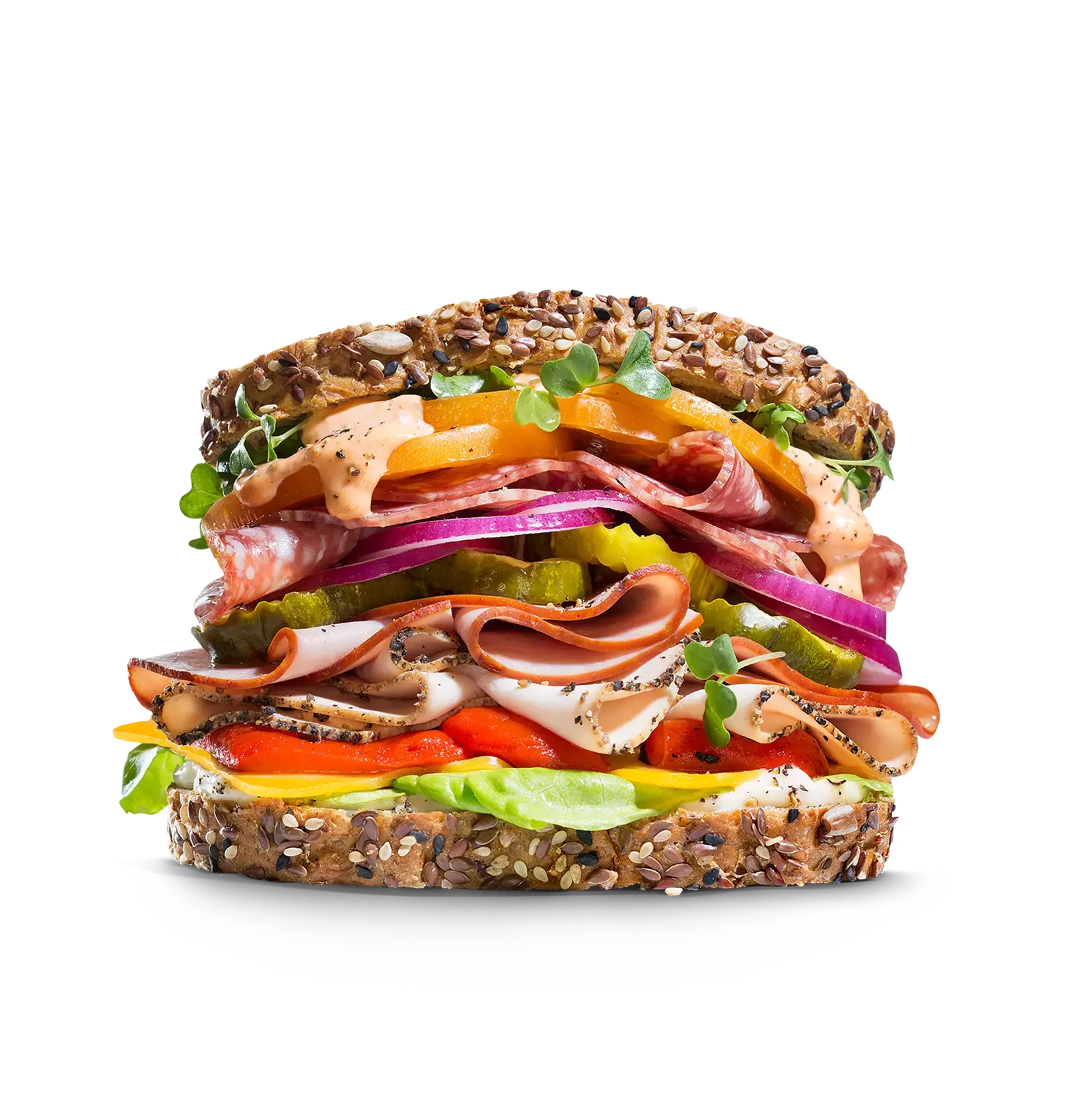In diesem Beitrag vorgestellt
Your Guide To Understanding the Full Scope of Food Industry Software
Your Guide To Understanding the Full Scope of Food Industry Software

Greek philosopher Heraclitus is attributed with coining the saying, “There is nothing permanent except change.” The wisdom in his quote is abundantly clear when you consider how rapidly the food and beverage industry has evolved over the past several years.
Gone are the days when the biggest concern for businesses was delivering a viable product to market. Now, organizations like yours must account for stringent government traceability regulations, disrupted supply chains, consumer demands for sustainability and a host of other vital considerations.
Thankfully, the food technology at your disposal has also been advancing with the times. Here are just a few examples of the new developments that have received widespread acceptance in the food and beverage world:
Of course, we recognize that such a bevy of acronyms may not provide you with clear direction in your digital transformation. Just what purpose does each of these offerings serve, and why should you consider implementing them at your company?
Read on to get an overview of what food industry software is available and how it can help your business keep pace in such a dynamic environment.
Food ERP: The Brains Behind the Operation
Dedicated food ERP software is considered the foundation of any good digital transformation initiative. That’s because this all-in-one, organization-wide solution serves as a “single source of truth” and includes features for many of your critical processes, including lot traceability, quality control, inventory management and more.
One of the key advantages to be gained from deploying an ERP in your business is the digitization of all your data. An ERP system makes it much easier to ditch the outdated and inefficient paper-based methods of record-keeping that may still exist in some of your departments. Instead, a food and beverage ERP eliminates siloes and serves as a highly accessible source of information that can automate data collection via integrations with barcode scanners and smart devices.
Food ERP systems also help you manage your supply chain with complete bidirectional visibility to ensure you’re prepared in the case of a contamination or full-blown food safety emergency. You’ll be able to rapidly track the issue to its source and execute your recall plan right away—with some steps even automated by the software.
Finally, advanced offerings like our own Aptean Food & Beverage ERP can be implemented via the cloud, lowering your up-front costs and maximizing the flexibility of your platform. With disruptions now a common occurrence and working from home and on the road a necessity, it is invaluable to always have this option available.
OEE: Enhancing Equipment Efficiency
An OEE system makes for an obvious next step for food and beverage businesses that need additional manufacturing solutions to support their ERP. These solutions deliver complete visibility into productivity—helping you increase efficiency and plan attainment. By providing your staff with real-time updates from the shop floor, your teams will be more capable of executing your production plans and making good on your commitment to deliver orders on time and in full.
A good OEE will also have features that allow you to track losses that occur during your manufacturing processes and identify how to improve your yield in future runs. What’s more, the platform has functionalities for streamlining your changeover, clean-in-progress and sanitation procedures. These capabilities ensure that your production line operates at peak efficiency, minimizing downtime and reducing waste. OEE can significantly impact your bottom line, ensuring that you optimize the use of your existing resources and deliver consistent, high-quality products to your customers.
EAM: Maximizing the Lifespan of Your Assets
On the subject of equipment and machinery, EAM solutions are a solid complement to ERP and OEE. The right EAM will help you monitor the performance of your hardware, manage maintenance and keep tabs on your inventory of spare parts so that malfunctions and delays can be mitigated.
Equipment reliability is directly linked to product quality, safety and operational efficiency, so an EAM system should be high on your list of priorities. With it you can enable preventive maintenance strategies to ensure your machinery is serviced at optimal intervals—preventing unexpected breakdowns and costly downtime.
By extending the lifespan of your assets and ensuring they operate at peak efficiency, EAM helps reduce operational costs and maintain consistent production output. Paired with comprehensive asset tracking and maintenance records, your equipment will meet regulatory requirements for health and safety with ease.
TMS: Optimizing Your Distribution
Your work is only complete once end consumers have their orders in hand. Customer satisfaction hinges on meeting potentially tight time windows and getting goods to the correct recipients in excellent shape, so leveraging purpose-built TMS technology alongside your ERP is a great idea.
A well-rounded suite of transportation management includes multi-carrier TMS, routing and scheduling, electronic proof of delivery (ePOD) and home delivery. Firstly, multi-carrier TMS for manufacturers and distributors gives you complete visibility and control of your shipments across all your transport modes. A good TMS will select the optimal carrier for your shipment needs and automate communication with them so you can save time and costs.
Next, having routing software in your arsenal is particularly beneficial for food distribution companies because you can use a hybrid model in which both static routes and late orders are accounted for to create an optimized delivery schedule that meets your customers’ requirements, all while cutting down on planning time and transportation costs.
ePOD, meanwhile, helps to ensure a positive customer experience by streamlining and digitizing proof of delivery data capture, increasing the visibility of important information and decreasing the need for tedious paperwork. Finally, a full omnichannel home delivery system is a great choice for food and beverage companies that are exploring direct-to-consumer methods for their order fulfillment.
PLM: Streamlining Product Development and Compliance
PLM is a critical tool for food and beverage businesses aiming to streamline their product development processes and ensure compliance with ever-evolving regulations. PLM systems centralize all product-related data—from recipes and formulations to packaging and labeling requirements—within a single platform. This not only enhances collaboration across departments but ensures that everyone has access to the most up-to-date information, reducing the risk of costly errors or delays.
Adopting a PLM system can be particularly beneficial for food businesses due to the complex nature of product development and the stringent compliance standards that must be met in your industry. With consumer preferences and regulatory landscapes constantly shifting, PLM gives you the agility needed to quickly adapt to new trends, innovate with confidence and bring products to market faster.
Additionally, by maintaining thorough records of every stage in the product lifecycle, your business can more easily demonstrate compliance during audits, protecting your brand and avoiding potential fines.
EDI: Automating Your Partner Communications
EDI enables the automated exchange of food and beverage business documents, be that invoices, purchase orders or shipping notices, between you and your partners in a standardized electronic format. When built-in or fully integrated into your ERP system, EDI facilitates seamless communication between you and your trading partners—meaning no more manual data entry.
This solution is particularly valuable in the food and beverage industry where complex supply chains mean timely coordination is essential for managing inventory, processing orders and ensuring product freshness. Incorporating EDI enables quick processing of high-volume orders, ensuring that perishable goods are delivered on time, reducing spoilage and waste.
With automated transaction processing, you can better manage your relationships with suppliers, distributors and retailers, gaining greater visibility into your supply chain and ensuring that all data is accurate, timely and accessible. EDI integration also helps you comply with industry regulations, as it can track and document the movement of goods through your supply chain, ensuring full product traceability and food safety.
BI: Unlocking Data-Driven Insights
Another solution to consider as a supplement for your ERP is BI. This solution helps you harness the power of your data and produce actionable insights. BI tools integrate data from multiple sources, analyze it in real time and present it in intuitive dashboards and reports. The forecasting capabilities in BI are especially valuable for food and beverage companies as they help in predicting demand trends, managing inventory and reducing waste by optimizing production schedules.
The best BI tools use advanced algorithms and machine learning to measure the impact your processes are having on key performance indicators (KPIs), allowing you to fine-tune your approach to bring about specific results. They enable deep drill-downs into performance metrics, including order accuracy, product quality, yield optimization and compliance with food safety regulations.
Moreover, with advanced systems like Aptean BI for food and beverage businesses, you can simulate different scenarios using "what-if" analyses, compare the outcomes and discover the best strategy for attaining your goals—whether it's improving operational efficiency, enhancing customer satisfaction or driving revenue growth.
Aptean: Your Partner for a Complete Digital Transformation in the Food Industry
Reading about these purpose-built, industry-specific solutions has hopefully piqued your interest in finding the right technology for your food and beverage business. At the same time, it’s natural to feel overwhelmed when you’re searching for a software package and managing an organizational shift of such magnitude.
Having an expert on your side who knows how to structure a comprehensive digital transformation can really help—from creating the roadmap and milestones to providing training and advice on best practices. Aptean’s experienced and passionate professionals are proud to serve in this role for our clients. Your company could be the next to benefit from our decades of collective expertise
A couple of key differentiators to consider when it comes to Aptean Food & Beverage ERP are our sector-specific features—like catch weight management, consignment tracking and grading and classing tools—as well as the guaranteed system uptime of 99.9%. That stands for both on-premise and cloud implementations so no matter which path you choose, you can count on excellent reliability and service thanks to our committed customer support and dedicated IT teams.
Plus, by choosing Aptean for your food and beverage software suite—from ERP all the way to BI—you reduce complexity in your tech stack, simplify your vendor communication processes, and benefit from our proven integration and implementation processes. In short, you get innovative industry-specific software, teamed with by-your-side partnership for the entire lifetime of your software—that's the Aptean advantage.
If you’re ready to learn more about Aptean’s full suite of food industry software, please contact us today. We also offer personalized demos if you want to see our platforms in action.
Additionally, check out our digital transformation quiz to a get a read on how far along your business is relative to peers in the industry.
Sind Sie bereit, Ihr Unternehmen grundlegend zu verändern?
Wir bieten Ihnen die spezialisierten ERP-Lösungen, die Sie für die Herausforderungen Ihrer Branche benötigen.



 Jack Payne | Vice President, Product Management & Solutions Consulting
Jack Payne | Vice President, Product Management & Solutions Consulting